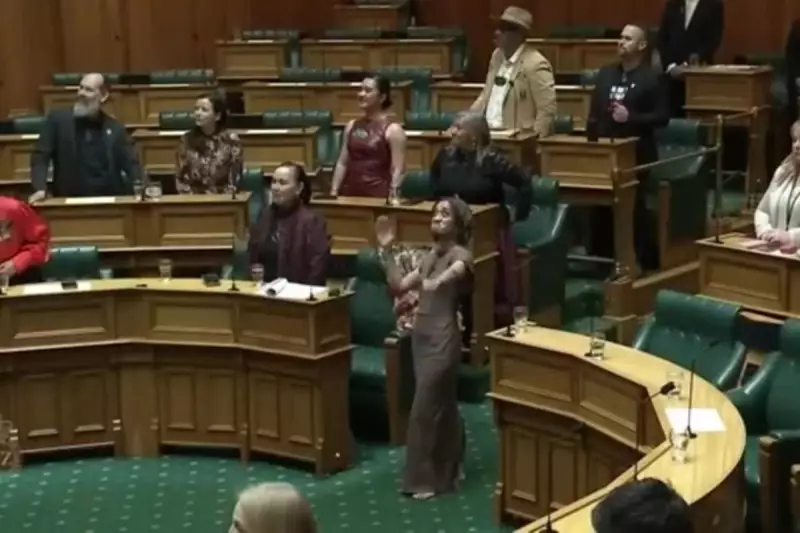
In a remarkable display of cultural defiance, New Zealand's parliamentary chamber echoed with the powerful rhythms of a traditional haka this week, as Māori Party co-leader Rawiri Waititi led his colleagues in an emotional protest against government policies.
The spontaneous performance unfolded during a heated debate, transforming the usually formal proceedings into a vibrant expression of indigenous culture and political dissent. MPs stood mesmerised as the haunting chants and forceful movements filled the chamber, creating an unprecedented moment in the nation's parliamentary history.
A Protest Born from Frustration
The haka emerged as a direct response to what Waititi described as "anti-Māori policies" being advanced by the current government. In passionate remarks following the performance, the Māori Party leader declared the demonstration necessary to "exercise our rights in this Parliament to express our frustration."
This powerful cultural intervention highlights the growing tensions between New Zealand's coalition government and indigenous representatives, who feel increasingly marginalised in current political discourse.
Parliamentary Protocol Meets Cultural Expression
The extraordinary scene saw traditional parliamentary decorum momentarily set aside as the haka's intensity captivated everyone present. Such cultural performances within the debating chamber are exceptionally rare, making this event particularly significant.
Waititi defended the action as a legitimate form of political expression, stating the haka represented both protest against specific policies and affirmation of Māori identity and rights. The performance served as a stark reminder that New Zealand's parliamentary traditions must coexist with its rich indigenous heritage.
Broader Implications for New Zealand Politics
This dramatic protest occurs against a backdrop of ongoing debates about the place of Te Tiriti o Waitangi (the Treaty of Waitangi) in modern governance and the representation of Māori interests in national policy-making.
The haka in Parliament signals a new chapter in how political dissent might be expressed in New Zealand's highest democratic institution, potentially setting a precedent for future cultural demonstrations in political settings.
As the video of the performance circulates widely, it continues to spark important conversations about indigenous rights, political expression, and the evolving nature of parliamentary democracy in Aotearoa New Zealand.





